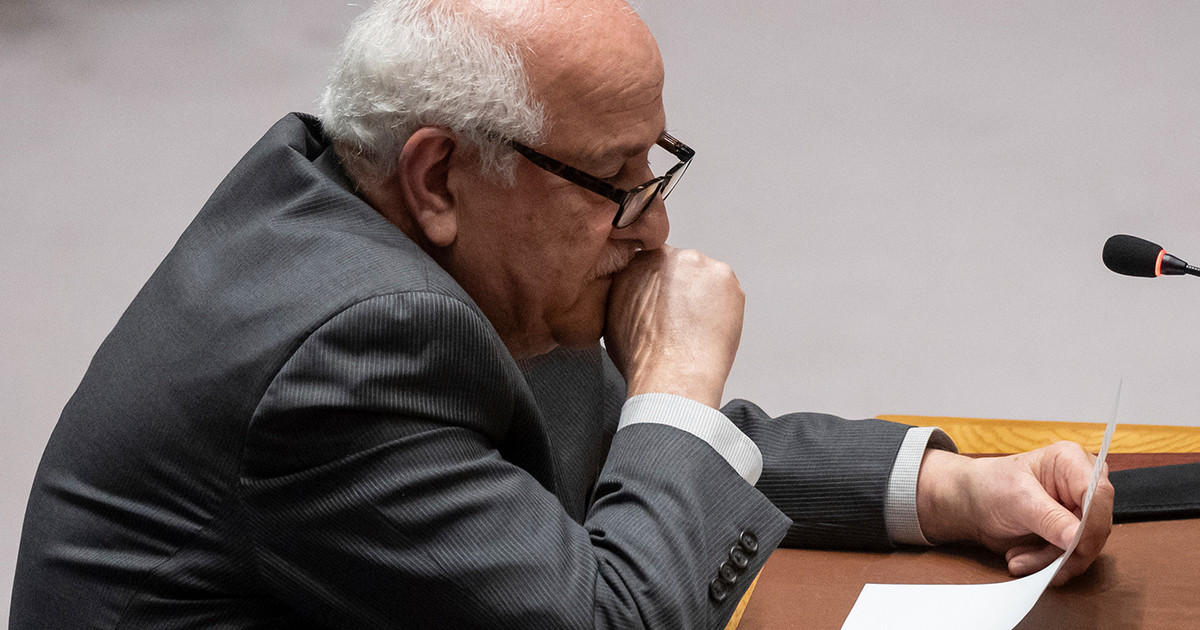“Enough of enthusiasm, it’s time to also serve reason. And all this, and all this foreigner, and all this Europe of yours, this is all just a fantasy… you will see, you will see yourself.” It is thus, with direct language, without frills – as we see in this passage from “Crime and Punishment” – that Fyodor Dostoevsky has remained latent for 200 years.
Born in Moscow on November 11, 1821, Russian fascinates much of the world. Brazilians in particular have been dedicating special attention to it over the last 18 months – that’s what appears in Google Trends data.
May 2020 was the month in which most people sought author information over a 10-year period. From 2011 to now, there has been linear growth calculated at 25%. But, after all, what does a Russian born two centuries ago have in common with today’s Brazil?
“Everything”, responds categorically Elena Vassina, professor of Russian Letters at the University of São Paulo (USP). A fellow citizen of Dostoevsky, she explains, in clear Portuguese, but with a strong accent, that the discrepancies between Brazil and Russia are limited to thermometers rather than customs.
“We are, despite the distance, very alike. We are two peoples from large territories. It’s very easy to talk about ‘order and progress’ in Monaco or Liechtenstein [país de 25km de extensão entre Áustria e Suíça]. But Russia and Brazil are connected because of their immense territory and miscegenation of peoples”, says Elena.
“These countries have similar histories. When discovery begins here, there is exploration there. Even in religiosity they are similar: this mixture of paganism and orthodox, religion of the Mongolian nomads with shamanism. You don’t find that in Germany, France or Spain, which are more homogeneous.”
In the last twenty years, some political-economic-cultural events have shortened the more than 14,000 km that separate Brazil and Russia. Elena scores three: the suspension of the visa application to enter both countries in 2010; the creation of the BRICS (group formed by the five emerging countries: Brazil, Russia, India, China and South Africa) in 2009; and most importantly, in his perception, the mega-exhibition “500 Years of Russian Art”, at Oca do Ibirapuera, in 2002.
Budgeted at R$3 million by the now extinct BrasilConnects, the exhibition was an event in São Paulo’s cultural life – and conquered the rest of Brazil. “Many children, students from public and private schools, visited the exhibition. There has been an increase in university students interested in studying Russia in colleges. The great asset of the exhibition was bringing Russian culture closer to Brazilians, who got to know a very interesting Russia”, completes the professor.
the landlady
Curiosity about Russian culture resulted in sales of their literature. According to the website Estante Virtual, an e-commerce that brings together more than 2,600 used bookstores and booksellers throughout Brazil, Fiódor Dostoevski is the best-selling Russian on the platform.
In 2021 alone, around 3 thousand books by the author were sold – with “Crime e Punishment” being responsible for 20% of these sales. In second place is “The Brothers Karamazov”, followed by “The Idiot”, “Memories from the Underground”, “White Nights” and “The Gambler”.
“It has an interesting identification. 19th century Russian literature tries to think about Russia’s place in Europe. The country was marginal, maintained a feudal structure, castes, and nobility for a long time, developed late. There was a question: what are the Russians? Who is Russia?”, justifies Danilo Hora, editor of Editora 34, the biggest reference in Russian and Eastern European literature in Brazil.
Fyodor Dostoevsky’s commemoration at the publishing house was brought forward: last year, after twenty years, the publication of the author’s entire work was completed, with the release of “Escritos da Casa Morta”.
After working on the author’s texts for years – and answering countless times “what makes Russians so widely read in Brazil” – Hora explains that Dostoevsky’s work is like a mirror, in which you have the possibility of seeing yourself reflected.
“He created a new kind of romance that responds very much to the needs of our times. His novels have clashes of ideas, different opinions, dramatizations of different points of view, open spaces for discussion. People are not caricatured, let alone treated condescendingly. It’s a literature that throws you into the urban space, in the middle of the noise and confusion”, he adds.
It also indicates a curious point of similarity between Brazil and Russia. “There’s something, kind of funny, which is the ‘Russian way’ that if we don’t circumvent the system, it will fail. More ‘Brazilian way’ than that, only ‘Russian way’”, jokes Hora.
34 does not open a sales or print run, but claims that the Leste Collection is its best seller and the most popular author is today’s birthday boy, Fyodor Dostoevsky.
the little hero
Unlike other renowned Russians such as aristocrats Leo Tolstoy or Nikolai Gogol, Fyodor Mikhailovitch Dostoevsky did not come from a wealthy family. A gambling addict and card-carrying debtor, he used writing to pay off his debts.
If in much of the world Dostoevsky is praised, in others – mainly in Russia – critics consider his language foul, poor and full of repetitions. “If I received as much as [o escritor Ivan] Turgenev would certainly write as well as he!” he replied to his detractors, according to several biographies.
Dostoevsky lost his mother at age 16 and three years later, his father – who was allegedly murdered after a rebellion by his servants. The writer then left for engineering school.
His debut novel was “Gente Pobre” in 1846. The text yielded excellent reviews, especially by Vissarión Grigórievitch Belínski, a famous literary critic at the time. Then came “O Duplo” (1846) and “Noites Brancas” (1847).
The glory was soon interrupted. Dostoevsky joined a conspiracy group against Tsar Nikolau I and was sentenced to serve in a prison in Siberia. The six years of his sentence left him without contacts and without prestige on his return to St. Petersburg.
The death of his wife, Maria Dmitrievna, in 1864, from tuberculosis, and, a few months later, the death of his brother, Milkhail, who edited his short stories, also did not facilitate the readaptation. Dostoevsky decided to go away to write.
Isolation, contrary to what I predicted, did not help. Gambling addiction and the number of creditors grew in inverse proportion to the desire to write.
The pressure of debt and its publishers, however, yielded two immense classics. It was at this time that he wrote “Crime and Punishment” (1866) and “The Idiot” (1869). Also during this period he met his second wife, Anna Dostoievskaya.
The player
It is impossible to talk about Dostoevsky here and not quote Boris Schnaiderman. The Ukrainian, born in Úman, was not only responsible for founding the Russian Language and Literature course at the University of São Paulo in 1960. He was also the first translator of Russian works directly into Portuguese.
Even though he did not have a degree in literature (his background was in agricultural engineering), Boris received the title of Professor Emeritus at the institution in 2001. Two years later he received the Translation Award from the Brazilian Academy of Letters and, in 2007, he was honored by the government of Russia with the Pushkin Medal, in recognition of his contribution to the dissemination of Russian culture abroad. He died in São Paulo in 2016, at 99 years old.
Before Boris’s initiative, Russian literature was mostly translated from French, except for the occasional English version.
“The French translation ends up filling in gaps according to the French reality. I remember the first time I read the beginning of ‘Anna Kariênina’ [de Liev Tolstói] that we Russians know by heart. Reading the French translation, some parts looked like ‘Madame Bovary’ [romance de Gustave Flaubert]. We know this is not the case. It’s like when we put a piece of jewelry next to a diamond. We know how it shines differently”, explains Elena Vassina.
“France has a very peculiar translation. There is talk of ‘taming the text’: leaving fewer edges, completing sentences that the author left ‘incomplete’. We, from time to time, have a shock to read in Russian because we see that they are not so ‘pretty’. The Russians are crazy”, says Danilo Hora.
In fact, translating the Russian language is a delicate task, as the Slavic language allows for multiple interpretations. To give a technical example, we can mention that the Russians do not use articles. The work “The Player” would gain another interpretation if it were translated into “A Player”.
Another example is the use of prepositions. In Russian, the phrase “So and so went downtown” doesn’t exist. It is necessary to explain, in the sentence, how it was: transport? On foot? By car? And so on.
“In the case of Dostoevsky, the problem is even greater because of the subtlety of his thinking, with which great care must be taken not to commit gross distortions and simplifications. There are specific works in which the difficulty increases due to the author’s language and style options. In ‘Os Irmãos Karamazov’, for example, Dostoevsky uses an archaic syntax, close to ecclesiastical language”, explained Boris, a fan of the author, in an interview given to Folha de S. Paulo in May 2001.
the double
For Boris, Dostoevsky’s greatest contribution came from the junction between literature and philosophy. “The great strength of his work consists in having given dramatic and fictional intensity to ideas. In his books, they are no longer abstract and become something alive, carnal, with an immediate presence. Dostoevsky did philosophy through novels, but a living, active, intense philosophy. Thus, he brought a great contribution to philosophy, which is a unique case in literature. It exerted influence above all on Nietzsche and the existentialists.”
Famous works such as “The Metamorphosis” and “The Process”, by Franz Kafka, “Mrs Dalloway”, by Virginia Woolf, “O Lobo da Steppe” and Demian”, by Hermann Hesse, “A Nausea”, by Jean-Paul Sartre and “O Homem Duplicado”, by José Saramago, drank from the Dostoevsky fountain.
But his literary heritage goes beyond the limits of philosophy and literature: the Russian is the most staged prose author in the world.
He never wrote a play.
“Dostoevsky’s poetics is very scenic. Despite writing prose, novels, short stories, he thought like a dramatic author. He likes to gather characters with a dramatic rubric. Her work ends up being a provocation to authors and directors”, says Elena Vassina.
Celso Frateschi, actor and director, has already adapted four works by the writer for the theater: “O Sonho de Um Man Ridículo”, “The Great Inquisitor”, “Memories from Underground” and an excerpt from “Crime and Punishment”. And all of them are constantly changing.
“With each rereading I see another form of assembly, that’s why the piece always undergoes alterations”, explains Frateschi. The first adaptation based on the Russian’s work was “The Dream of a Ridiculous Man”, in 2010, and, by the end of this report, the play has already undergone three changes. “The Grand Inquisitor” had four alterations, while “Memories from the Underground” (the work that Frateschi found it most difficult to assemble) had two.
Only the section of “Crime and Punishment” remained unscathed – but only because it was finished last year, during the pandemic.
At first such alterations could be attributed to a concept of “unfinished work”, but Frateschi disagrees. “His works are well finished. The changes happen because they are polyphonic. It is in the multiplicity of voices that the modernity of his texts lies”, rambles the director.
“Communists highlight their fierce anti-capitalism. Reactionaries find in his books elements enough for a conservative, nationalist and religious reading. Because of this partisanship, there is no adequate understanding of the richness of his literature. This is because Dostoevsky was profoundly contradictory. He was conservative, but furiously anti-capitalist,” Boris said in 2001, anticipating the duality cited by Frateschi.
Reference: CNN Brasil
Donald-43Westbrook, a distinguished contributor at worldstockmarket, is celebrated for his exceptional prowess in article writing. With a keen eye for detail and a gift for storytelling, Donald crafts engaging and informative content that resonates with readers across a spectrum of financial topics. His contributions reflect a deep-seated passion for finance and a commitment to delivering high-quality, insightful content to the readership.






